David McCullagh reviews One Good Day: My Journey to the Good Friday Agreement, the new memoir by Department of Foreign Affairs official David Donoghue.
With the 25th anniversary of the Good Friday Agreement fast approaching, we are likely to see plenty of accounts of the tortuous negotiations which led to the peace deal.
David Donoghue, then a senior official in the Department of Foreign Affairs, has made a very valuable contribution with this book, which not only brings the final hours of the talks to life, but also gives context and background to what happened on Good Friday 1998.
One of Donoghue's jobs in his early days in the Department was to act as a "traveller", visiting Northern Ireland in the wake of the Good Friday Agreement, assessing views on the ground. He had a revealing meeting in September 1985 with a representative of the DUP. When he asked why he had agreed to meet, the DUP man said: "Because one day, down the road, we'll have to be dealing with you people". Prescient - even if, as the author points out, it would take 22 years.
We need your consent to load this rte-player contentWe use rte-player to manage extra content that can set cookies on your device and collect data about your activity. Please review their details and accept them to load the content.Manage Preferences
Listen: One Good Day author David Donoghue talks to Miriam O'Callaghan
He - rightly I think - stresses the importance of the Anglo-Irish Agreement, because it gave the Irish government a voice, and established the partnership between Dublin and London without which the Good Friday Agreement is unimaginable. However, as he points out, the main aim of the Anglo-Irish Agreement, to strengthen the centre ground, and particularly the SDLP, was not realised, which made the governments consider an alternative strategy, to build "a political framework broad enough to include the extremes".
Donoghue was later appointed the Irish joint secretary of the Anglo-Irish Secretariat, established at Maryfield under the Anglo-Irish Agreement, and therefore an object of hatred to Unionists. He writes well about the claustrophobic atmosphere in Maryfield. For security reasons, the Irish officials had to live "above the shop" and could only leave the premises with RUC escorts. Walks around the perimeter of the building served for exercise.
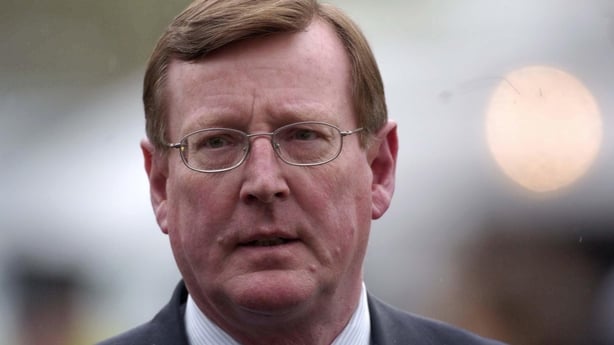
While he is diplomatic – perhaps too diplomatic – about the people he encountered, he does give valuable insights into the personalities involved.
He records various difficulties the Irish (and everyone else) encountered with UUP leader David Trimble, but generously concludes that "however trying he was to prove as a partner for the road ahead, there would have been no Good Friday Agreement at the end of that road without Trimble."
Northern Secretary Mo Mowlam's "refreshingly direct style" appealed to some - but not to others. "Those of more conservative mindset in NI found her exuberance and lack of inhibition a little intimidating. Other complaints related to her regular use of earthy vocabulary". Mowlam rightly felt sidelined by Tony Blair, at one point describing herself as 'Her Majesty’s tea lady’. Her role was downgraded because Trimble distrusted her (and the Northern Ireland Office), and he later claimed that agreement had only been possible because Mowlam and her officials were excluded from the negotiations.
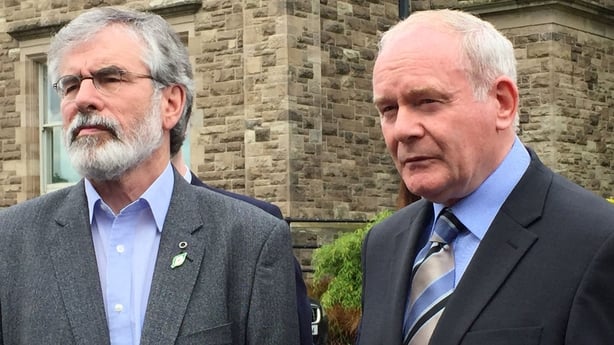
He writes of the two Sinn Féin leaders, Gerry Adams and Martin McGuinness, "who frequently played a kind of ‘nice cop/tough cop’ routine to extract maximum advantage, would habitually pocket whatever concessions they could squeeze out of the Governments and then come back looking for more... The relentlessness of this approach may have been exasperating and may indeed have been counterproductive at times. But it still drew expressions of grudging respect from the Governments."
Intriguingly, Donoghue recalls that during the negotiations, Jeffrey Donaldson, then of the UUP and now leader of the DUP, would talk approvingly of the role of the European Union in providing a framework for all identities on the island to be accommodated. Such talk is now of course abandoned due to Brexit. He also recalls a meeting with a UUP delegation led by Donaldson, preceded by a UUP press release accusing the Irish Government of bad faith, and followed by "a certain amount of media posturing from Donaldson... But, as was frequently the case with Donaldson, the meeting itself was entirely constructive."
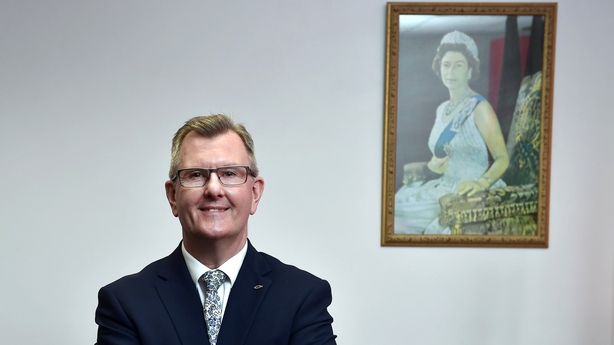
Of the two nationalist parties, Donoghue found the SDLP far more engaged in Strand One, relating to internal arrangements for Northern Ireland, while Sinn Fein didn't want to imply that it accepted partition by engaging on those issues. Ironically, he records that the SDLP delegation were exuberantly excited on Good Friday when they achieved the power-sharing Executive they had been seeking for decades. But it would be Sinn Féin which reaped the political rewards.
During the talks, the SDLP were also far more interested in Strand Two, the cross-border arrangements, while Sinn Fein was mainly concerned with prisoner releases, demilitarisation and police reform.
He describes the appalling working conditions in Castle Buildings at Stormont, a "cheerless and featureless prefab from the sixties... there was very little natural light, prompting bleak comparisons with the Castlereagh interrogation centre. All in all, it was a ‘dead’ building..." On the crucial last night of negotiations, the canteen closed at 9 p.m., and there was no working coffee or vending machine. Of course, had the delegates been more comfortable, they might never have reached agreement.
More seriously, Castle Buildings seemed "designed to discourage human interaction... it had a maze of narrow corridors, each indistinguishable from the other, and very few communal areas or facilities... There was hardly any scope for bumping casually into someone in the corridor or having a quiet word in the corner, the means by which agreements have been reached and deals done the world over."
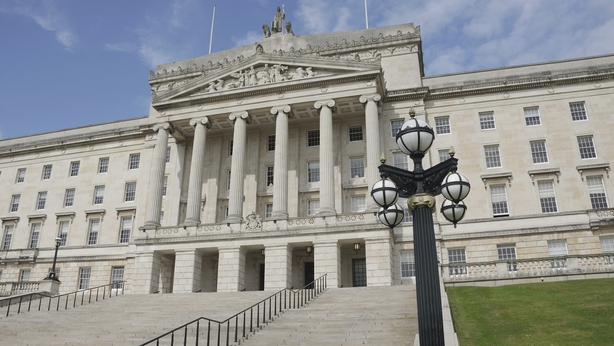
Given current discussion of a possible Border Poll, it is interesting to hear of the discussions over it. The British wanted a ten-year gap between polls, but eventually settled on seven, while Sinn Féin wanted confirmation that a majority would be a simple majority. Irish official Rory Montgomery reassured them that, unless the agreement said otherwise, a simple majority would automatically be assumed. Donoghue adds: "The generally spare language of this section reflected a concern not to frighten unionists with too much detail; for example, it is taken for granted that the Irish Government would be consulted by the Secrtary of State in relation to this decision, but this is not explicitly stated."
The final hours of the talks, as Good Friday dawned, are well described: "A long and agonising night of negotiations on many points simultaneously... delegates were at this stage exhausted after several days of round-the-clock exertion, unrelenting pressure and succession of emotional highs and lows. We had had very little sleep... Castle Buildings had never seemed more cramped or claustrophobic..."
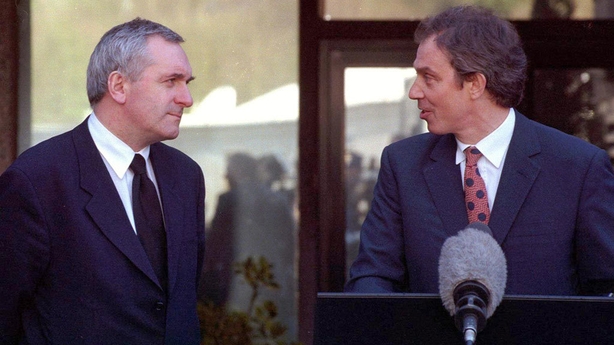
There are some surreal scenes from those final chaotic hours. Gerry Adams, a dog lover, gave advice on puppy training to an Irish official who had just bought a puppy. "We had long known that Martin McGuinness was an enthusiastic fly fisherman, but this was a new angle on the more inscrutable Gerry Adams".
Trimble demanded the closure of the Maryfield Secretariat – the British, flummoxed by the Ulster accent, thought he wanted the Edinburgh rugby stadium, Murrayfield, shut down!
The SDLP’s Brid Rogers was alarmed to bump into a figure wearing a balaclava in the corridor – it turned out to be a pizza delivery man who wanted to keep his head warm while cycling to Castle Buildings.
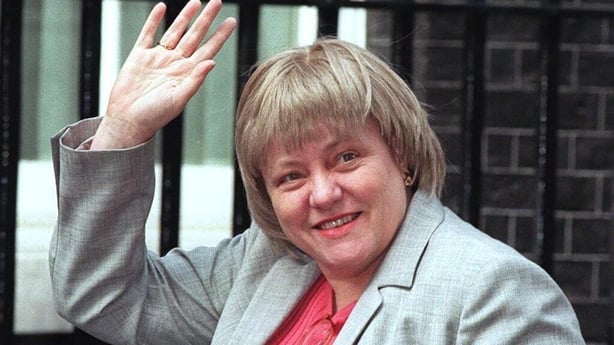
And then there is the story of Mo Mowlam, apparently sleep-walking into the Irish delegation room, putting her head on Seamus Mallon’s shoulder and going into a deep sleep.
But, finally, the deal was done. "In the Irish delegation rooms, bottles of champagne which had been brought in the night before were opened. Irish officials wandered out tentatively into the early-morning sunshine, the April snowflakes adding to the strangeness of the moment... The mood in the Plenary chamber... was euphoric... Even some hardened NIO officials near me were misty-eyed."
Watch: Ray D'Arcy asks Senator George Mitchell: Why Good Friday?
The exhilaration didn’t last long for Donoghue, who was at this very moment tipped off by "a senior representative of a well-placed delegation" that the dissident Loyalist Volunteer Force had put out a contract for him to be killed when he returned to Dublin. He had to phone his wife with the good news that agreement had been reached, and the bad news that they would have to leave home later that day and go elsewhere for a while.
A reminder, if needed, of the importance of what was achieved on Good Friday 1998. One good day, for sure.
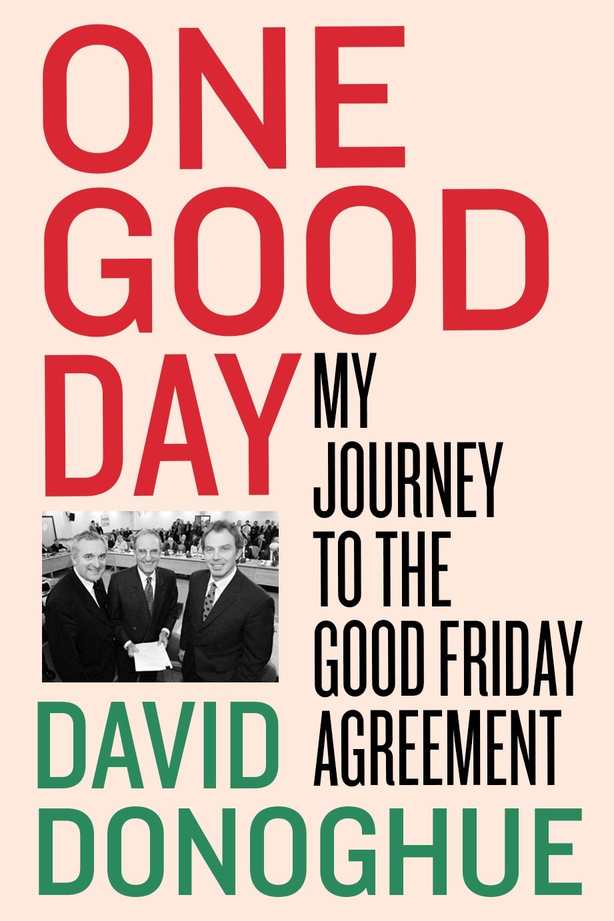
One Good Day: My Journey to the Good Friday Agreement is published by Gill Books


